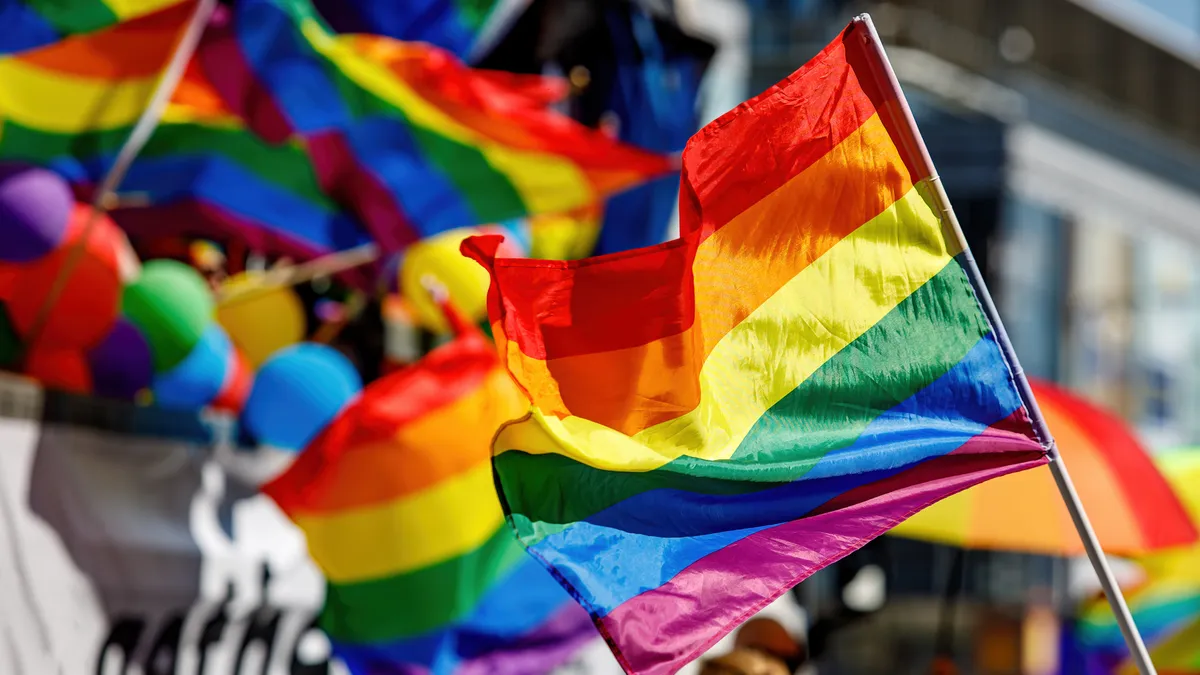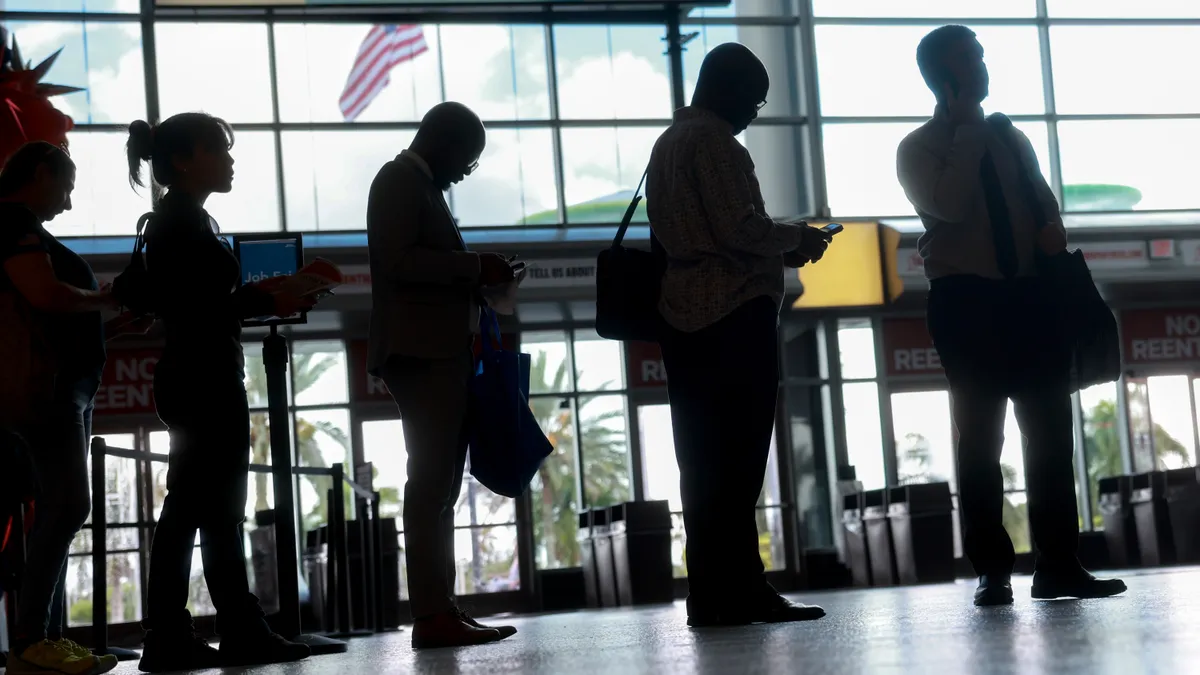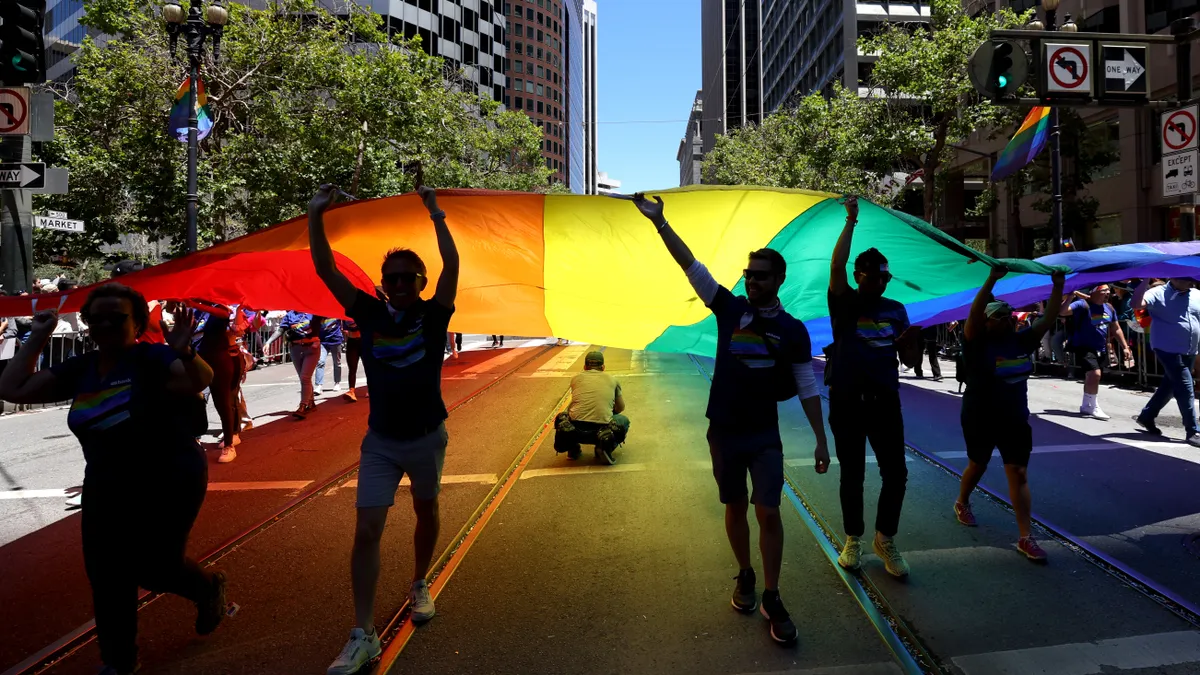In the many decades since the 19th Amendment was passed, women have been nominated for the two highest offices in the land, but "we still have yet to have a woman president," Tina Tchen, CEO of Time's Up Foundation, said on a recent panel hosted by The Brookings Institution. "A woman has been nominated for vice president by one of the major parties only three times," Tchen added.
And, in the workplace, despite efforts for diversity and inclusion in the C-suite, "the numbers remain dismal," Tchen said. "The most recent data shows that at Fortune 500 companies, only 7% of CEOs are women. Only three are women of color. Today in 2020, not a single Fortune 500 CEO is a Black woman. And this was before the pandemic and the economic crisis unfolded."
This year marks the 100th anniversary of the ratification of the 19th Amendment, which prohibited denying U.S. citizens the right to vote based on sex. However, in many states Black women remained disenfranchised from voting due to the racist Jim Crow laws in the South, for example, according to the National Women's History Museum. Although 100 years ago, White suffragist leaders were unwilling to include Black suffragists in the main movement, the efforts of Black women offered an "intersectional vision refusing to separate gender from other factors such as race and class, which made voting rights part of a larger conversation about social and political change," Susan Ware, the honorary women's suffrage centennial historian at the Radcliffe Institute's Schlesinger Library at Harvard, said during the panel.
In 1971, the late Rep. Bella Abzug, D-NY, introduced a successful bill to U.S. Congress, which designated Aug. 26 of each year as Women's Equality Day in celebration of the ratification. But it would take more than 40 years after the bill's ratification for all women to achieve voting equality.
Today, the day recognizes how far women's rights have come and places a spotlight on areas that continue to be affected by gender bias. The Brookings Institution's Aug. 24 webinar, featuring experts including Tchen and Ware, is part of a series to examine the state of gender equality and what needs to be done to achieve full equality for women in society. The disproportionate effect of the COVID-19 pandemic on working women was one topic of discussion.
The pandemic has revealed the struggle working women have endured for years, Tchen said. Essential workers once taken for granted are now critical, she said. "Women workers are the majority of those workers," Tchen said, pointing out that according to The New York Times, 1 in 3 women are in a job deemed essential in the pandemic.
A new child care crisis
School closures or partial openings across the country due to the coronavirus require flexibility from employers for working parents, according to HR experts. But working women will be impacted the most amid a child care crisis, Tchen said.
"Instead of creating an economy where women and people of color can fully participate," Tchen began, "we are entering a new crisis that may exclude working parents, especially working mothers, and reverse the gains we've made in women's lib across the nation over [several] generations." Working women, especially those without the means for private childcare options, are struggling with how to care for their children, Tchen said. Stronger paid leave policies including paid sick days and paid family leave to care for sick loved ones is crucial, Tchen added.
A panel discussion moderated by Camille Busette, a senior fellow and director of the Race, Prosperity, and Inclusion Initiative at Brookings, also pointed to the obstacles working women face. The priority for the Administration now and for whomever is elected to the presidency in January should be ending the pandemic, which would be helpful for women trying to work and take care of their children, Isabel Sawhill, a senior fellow in economic studies at the Brookings, said.
The pandemic has added on a new role as educator for many women with full time jobs who support their families, Elaine Kamarck, a senior fellow in the governance studies program and director of the Center for Effective Public Management at Brookings, said. "So there's an awful lot of women out there faced with having to monitor and augment school work," Kamarck said. "And we've already seen some anecdotal evidence and statistics of women dropping out of the workforce because of the coronavirus [pandemic]. We have got to get this under control."
In a survey of approximately 2,000 professionals across the country, women reported they are twice as likely as men to leave their job within a year due to their workplace experience during the pandemic, WerkLabs, the insights division of The Mom Project, reported in June.
Intersectionality of gender, race and class
Research has shown the economic impact in industries hardest hit by the pandemic is having a disproportionate impact on women, Black and Hispanic individuals, who are workers or small business owners. The Time's Up Foundation called on employers to keep in mind the value of diversity and inclusion, even if financial hardship leads to layoffs during the pandemic. The organization's Guide to Equity and Inclusion During Crisis released May 27 suggested employers examine the impact on workforce diversity and create a task force composed of a cross-section of employees at all levels to advocate for employees when leadership makes decisions on layoffs and furloughs.
Makada Henry-Nickie, a fellow in governance studies at Brookings, discussed dignity in work and intersectionality. In the economic, political and social realms addressing "the dignity of women, particularly women of color" requires "making an intersectional alignment that intersects with issues of gender and race and class," Henry-Nickie said. Congressional representation "is going to be essential" in creating policies that address "the equality and the dignity of women of color, in particular," Henry-Nickie said. And, dignity involves being to take care of one's family, she said.





















